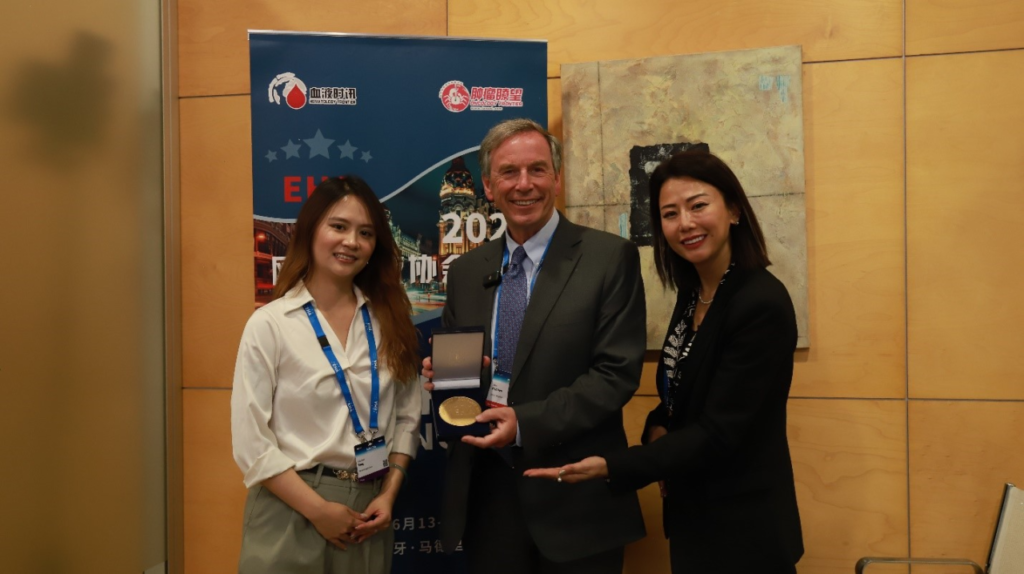
At the recently held 29th Annual Congress of the European Hematology Association (EHA), Professor John Gribben, former chairman of EHA and head of the Hematological Center at Barts Cancer Institute, Queen Mary University of London, was awarded the José Carreras Prize for his outstanding contributions in the field of immunology research. "Oncology Frontier-Hematology Frontier" specially invited Professor John Gribben to share his research findings and his feelings about the award. In addition, Professor John Gribben also discussed the significance of patient-centered treatment in the field of hematology and emphasized the importance of global cooperation and inclusive clinical trials to advance the field and provide the best care for patients worldwide.Oncology Frontier-Hematology Frontier:First of all, congratulations on winning the Jose Carreras Award this year. The Jose Carreras Award is one of the most significant awards in the field of hematology. Could you please introduce your outstanding research and share your feelings about winning the award?
Professor John Gribben:I’m very honored to have received this year’s Jose Carreras Award. Jose Carreras, a very famous opera singer, is well-known in hematology for having received an allogeneic stem cell transplant. His experience brought significant attention to the field. He later established a charitable foundation that funds research in hematology, including this award. My research has focused on the immunology of hematological malignancies, particularly why cancer patients do not develop an immune response against their own cancer. We found that leukemia or lymphoma cells can suppress the immune system, and our work has aimed to reverse this suppression to use the immune system in the fight against cancer. This research has been foundational in the development of bispecific antibodies and CAR T-cells. It is gratifying to receive this recognition for our efforts in this area.
Oncology Frontier-Hematology Frontier:At this conference, you also served as the chairperson for one section. Could you share some of the highlights from this section?
Professor John Gribben:I chaired a session with the Lymphoma Foundation, a patient advocacy group. During my time as EHA president, I worked to increase patient involvement in our work. The session focused on relapsed refractory chronic lymphocytic leukemia (CLL) and discussed integrating the biology of the disease, treatment approaches, and patient preferences to develop the best treatment plans. We now have multiple treatment options for CLL, and it is important to involve patients in deciding which treatments they prefer. This engagement improves adherence and quality of life, making it a crucial component of our approach.
Oncology Frontier-Hematology Frontier:Currently, the field of hematology is undergoing robust development. What efforts should we make to further promote global cooperation and exchange in hematology?
Professor John Gribben:Global cooperation is crucial. We need to avoid duplicating clinical trials and leverage existing knowledge. Historically, collaboration has been strong between Europe and the United States. Now, with the globalisation of medicine and China’s emergence as a leader in CAR T-cell development, it is essential to involve the whole world. While I was EHA president, we established close associations with the Chinese Hematology Society, which is a great example of this collaboration. Additionally, understanding ethnic differences in patient responses to treatments is important. Including diverse populations in clinical trials can reveal differences in drug efficacy and toxicity, helping to tailor treatments more effectively.


